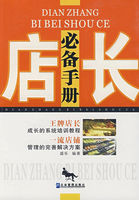Of these unreformed Courts, which are happily among the things of the past, I shall have occasion to speak in the sequel. For the present I wish merely to say that they were thoroughly corrupt, and I hasten to add that Pavel Trophim'itch was by no means a judge of the worst kind. He had been known to protect widows and orphans against those who wished to despoil them, and no amount of money would induce him to give an unjust decision against a friend who had privately explained the case to him; but when he knew nothing of the case or of the parties he readily signed the decision prepared by the secretary, and quietly pocketed the proceeds, without feeling any very disagreeable twinges of conscience. All judges, he knew, did likewise, and he had no pretension to being better than his fellows.
When Pavel Trophim'itch played cards at the General's house or elsewhere, a small, awkward, clean-shaven man, with dark eyes and a Tartar cast of countenance, might generally be seen sitting at the same table. His name was Alexei Petrovitch T----. Whether he really had any Tartar blood in him it is impossible to say, but certainly his ancestors for one or two generations were all good orthodox Christians. His father had been a poor military surgeon in a marching regiment, and he himself had become at an early age a scribe in one of the bureaux of the district town. He was then very poor, and had great difficulty in supporting life on the miserable pittance which he received as a salary; but he was a sharp, clever youth, and soon discovered that even a scribe had a great many opportunities of extorting money from the ignorant public.
These opportunities Alexei Petrovitch used with great ability, and became known as one of the most accomplished bribe-takers (vzyatotchniki) in the district. His position, however, was so very subordinate that he would never have become rich had he not fallen upon a very ingenious expedient which completely succeeded.
Hearing that a small proprietor, who had an only daughter, had come to live in the town for a few weeks, he took a room in the inn where the newcomers lived, and when he had made their acquaintance he fell dangerously ill. Feeling his last hours approaching, he sent for a priest, confided to him that he had amassed a large fortune, and requested that a will should be drawn up. In the will he bequeathed large sums to all his relations, and a considerable sum to the parish church. The whole affair was to be kept a secret till after his death, but his neighbour--the old gentleman with the daughter--was called in to act as a witness. When all this had been done he did not die, but rapidly recovered, and now induced the old gentleman to whom he had confided his secret to grant him his daughter's hand. The daughter had no objections to marry a man possessed of such wealth, and the marriage was duly celebrated.
Shortly after this the father died--without discovering, it is to be hoped, the hoax that had been perpetrated--and Alexei Petrovitch became virtual possessor of a very comfortable little estate. With the change in his fortunes he completely changed his principles, or at least his practice. In all his dealings he was strictly honest.
He lent money, it is true, at from ten to fifteen per cent., but that was considered in these parts not a very exorbitant rate of interest, nor was he unnecessarily hard upon his debtors.
It may seem strange that an honourable man like the General should receive in his house such a motley company, comprising men of decidedly tarnished reputation; but in this respect he was not at all peculiar. One constantly meets in Russian society persons who are known to have been guilty of flagrant dishonesty, and we find that men who are themselves honourable enough associate with them on friendly terms. This social leniency, moral laxity, or whatever else it may be called, is the result of various causes. Several concurrent influences have tended to lower the moral standard of the Noblesse. Formerly, when the noble lived on his estate, he could play with impunity the petty tyrant, and could freely indulge his legitimate and illegitimate caprices without any legal or moral restraint. I do not at all mean to assert that all proprietors abused their authority, but I venture to say that no class of men can long possess such enormous arbitrary power over those around them without being thereby more or less demoralised. When the noble entered the service he had not the same immunity from restraint--on the contrary, his position resembled rather that of the serf--but he breathed an atmosphere of peculation and jobbery, little conducive to moral purity and uprightness. If an official had refused to associate with those who were tainted with the prevailing vices, he would have found himself completely isolated, and would have been ridiculed as a modern Don Quixote. Add to this that all classes of the Russian people have a certain kindly, apathetic good-nature which makes them very charitable towards their neighbours, and that they do not always distinguish between forgiving private injury and excusing public delinquencies. If we bear all this in mind, we may readily understand that in the time of serfage and maladministration a man could be guilty of very reprehensible practises without incurring social excommunication.
During the period of moral awakening, after the Crimean War and the death of Nicholas I., society revelled in virtuous indignation against the prevailing abuses, and placed on the pillory the most prominent delinquents; but the intensity of the moral feeling has declined, and something of the old apathy has returned. This might have been predicted by any one well acquainted with the character and past history of the Russian people. Russia advances on the road of progress, not in that smooth, gradual, prosaic way to which we are accustomed, but by a series of unconnected, frantic efforts, each of which is naturally followed by a period of temporary exhaustion.















